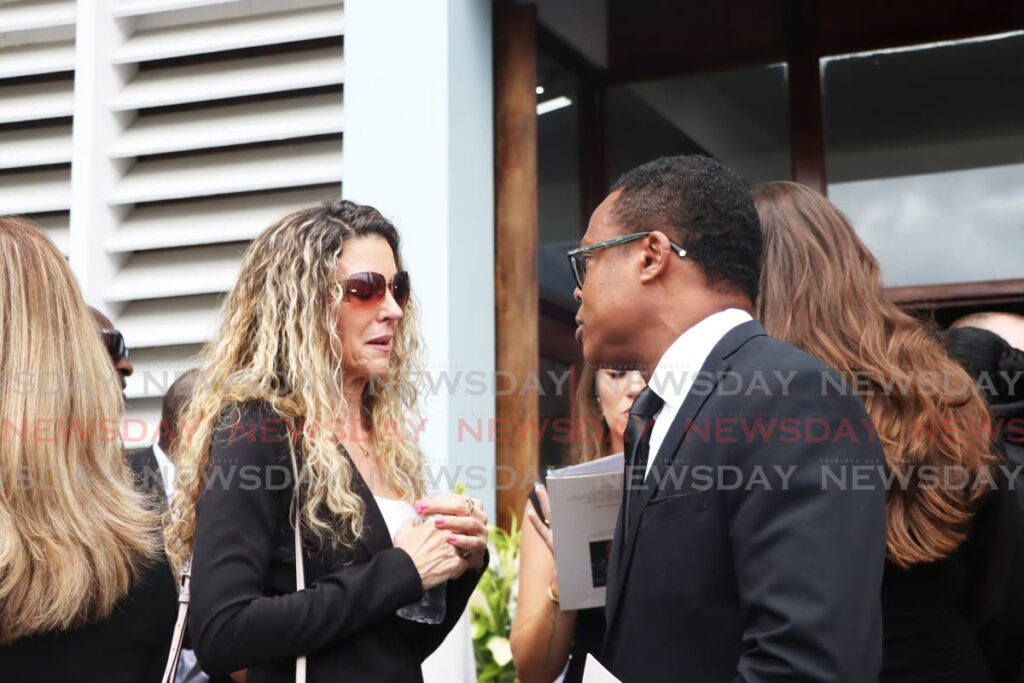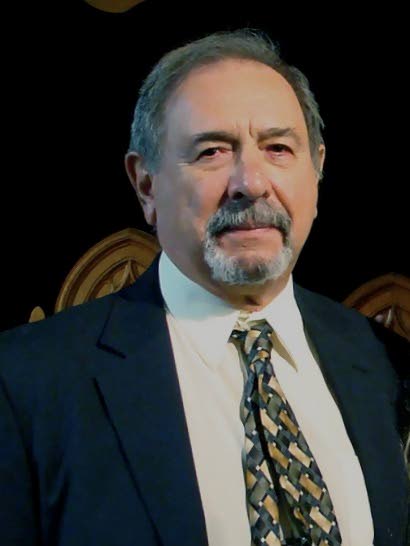CCJ head hails Michael de la Bastide: 'He shaped Caribbean justice'

FORMER chief justice the late Michael de la Bastide has deeply shaped the workings of the Caribbean Court of Justice (CCJ), said CCJ President Justice Adrian Saunders at his funeral, amid several calls for Trinidad and Tobago to join the CCJ in tribute to de la Bastide as the regional court's inaugural president.
De la Bastide was given an official funeral on April 11 at the Church of the Assumption, Maraval. Those attending included President Christine Kangaloo, former president Anthony Carmona, Chief Justice Ivor Archie, Acting Prime Minister Colm Imbert, Attorney General Reginald Armour, DPP Roger Gaspard and businessman Ken Gordon.
Saunders and Archie gave tributes. Saunders said de la Bastide now occupies a special place in the heart of the CCJ's staff and judges.
"As inaugural president of the court, it naturally fell to Justice de la Bastide to establish the norms, rules and processes that would shape the operations of both the CCJ and the regional judicial and legal services commission for well into the future."
He said this was difficult, as the region had no other court or institution similar to the CCJ.
"There was no template or precedent to follow. Our first president did an excellent job in discharging these pivotal responsibilities."
Saunders hailed de la Bastide for administering the court and advocating for its acceptance, throughout the region.
"The leadership and guidance he provided during those formative years were critical to the success of the court."
He hailed de la Bastide for executing the CCJ's remit in the region under the Caricom arrangement and for developing regional jurisprudence.
"We were extremely fortunate to have such an exceptional jurist as our first president."
Those taking the occasion to advocate for the CCJ included former Senate president Danny Montano and Law Association president Lynette Seebaran-Suite.
Montano told reporters it was no surprise de la Bastide had risen to the level he had, but could have done even more.
"The only thing – that he had nothing to do with – but it would have been nice if he could have taken us into the CCJ and made the CCJ part of our legal system and the supreme court of our country.
"That I would have liked to see. That would have been a great honour for him."
At present, TT's highest court is the UK-based Privy Council, above the High Court and Appeal Court. There have been calls for the CCJ to become TT's highest appellate court.
Seebaran-Suite said, "The best TT can do in his honour is to accede to the CCJ. He was the first president of the CCJ."
She said it was "a bit ludicrous" that TT did not have the CCJ as its highest court, despite the court being located here and TT having provided the CCJ with many eminent judges, including de la Bastide, and currently Justice Maureen Rajnauth-Lee and Justice Peter Jamadar.
Seebaran-Suite said her getting a job at de la Bastide's law firm as a young woman showed his recognition of a need for diversity in his firm.
Asked about her favourite memories of him, she replied, "What I remember, apart from his judicial excellence, was his conviviality and his joie de vivre (joy in life).
"Michael was always the life and soul of the party. Yes, very, very convivial.
"A very commanding presence, as was said this morning. We called him 'The Bull.' I think that was a representation of the force of his character."
Archie, in his tribute, hailed de la Bastide as a "devastating advocate, visionary leader and brilliant jurist."
He was a larger-than-life figure, whom many wished to emulate, the Chief Justice said. The jurist had headed both the judiciary and CCJ, Archie said.
"But the Michael de la Bastide I knew was a fun-loving, very human being, who wielded power with grace, humility and compassion."
However, Archie said he did not know that when he joined the legal profession, where de la Bastide was known by reputation as 'The Bull.'
"It was a well-earned moniker, not because he was overly difficult or intransigent. But it reflected an imposing, indeed irresistible, presence when stimulated by principle, deeply held conviction, or a challenging legal battle. But he always did leave open the possibility he could be wrong."

The Chief Justice said de la Bastide always believed the best of people unless proven wrong. Ivor said he had abhorred two things – laziness and deception.
Archie said de la Bastide had a legendary interest in the law and the ability to analyse it.
"So too were his sense of humour – often very dry – and his ability to laugh at himself.
"He pushed himself very hard in pursuit of excellence in everything he did and he expected the same from you."
Archie said de la Bastide's junior, judges and peers knew of him regularly giving them drafts with edited corrections that showed his commitment to good English.
The Chief Justice said the judiciary, legal profession, country and region will miss him.
"He was indeed an eminent jurist and a distinguished statesman but above all he was a man who loved life, loved and revered family, and was totally committed to the country and the Caribbean region that he so ably served."
Archie offered deepest condolences to de la Bastide's widow Simone, their children and grandchildren.
THA head Farley Augustine told reporters, "The best way to honour former chief justice Michael de la Bastide is to ensure we have a justice system that works and works for all our citizens."
He lamented that a significant number of people feel locked out of the judicial system, due to cost.
"A justice system that works is one that is accessible to all, that is efficient, that is timely because justice delayed is an injustice. That's a huge challenge we have as a country."
Augustine hoped the justice system would include mediation and alternative forms of treating antisocial behaviour.

Comments
"CCJ head hails Michael de la Bastide: ‘He shaped Caribbean justice’"